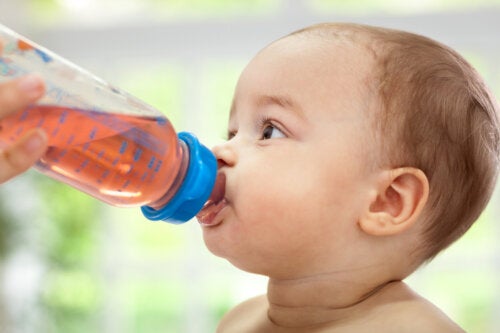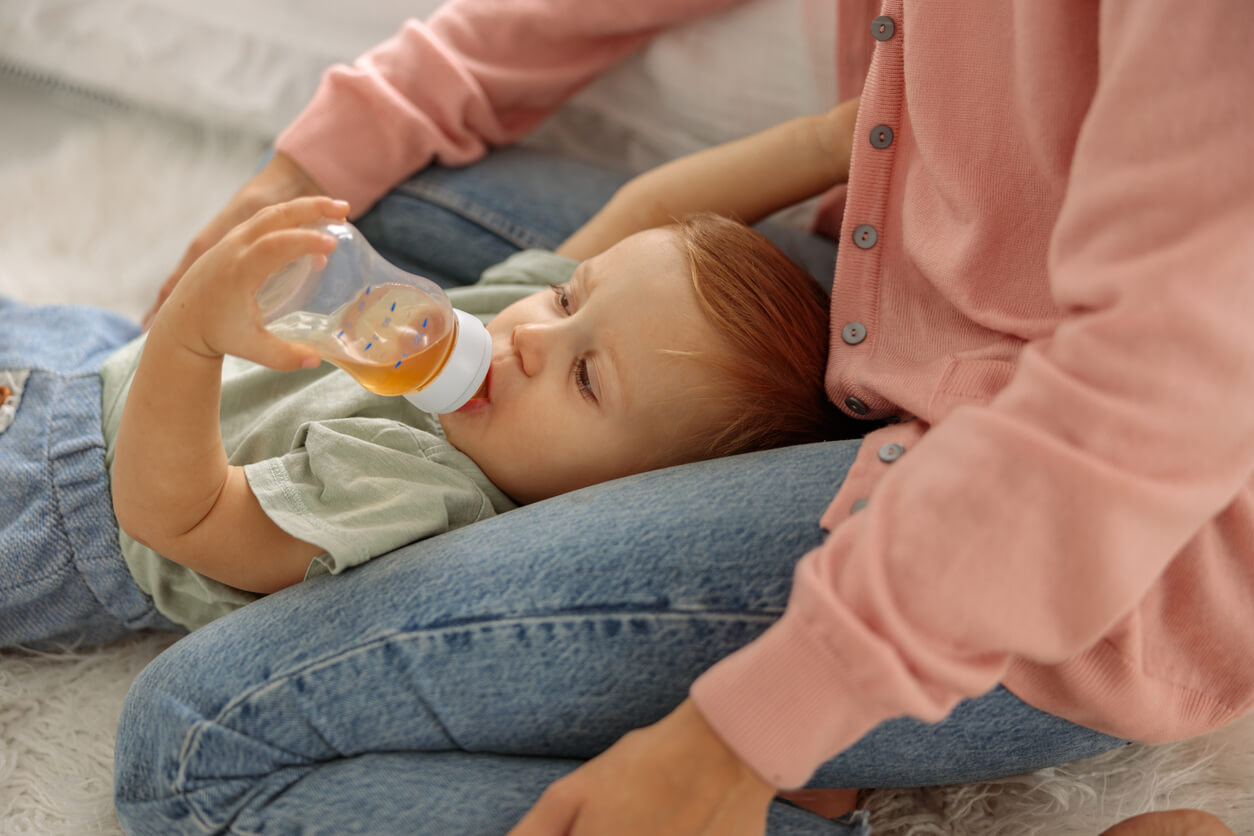Are Infusions for Babies Recommended?
It's not advisable to include herbal teas in the diet of infants. Learn more about the dangers of infusions for babies in today's article.

Infusions shouldn’t be introduced into the diet of babies, as they may be harmful to them. They have properties that can affect the digestive system but may contain toxic substances for a developing body. For this reason, it’s best to avoid them.
Although during adulthood, herbal teas may be suitable dietary supplements, in the early stages of life, it’s better to offer water or breast milk as the main liquids. These serve to ensure hydration and provide the nutrients the baby needs.
What are herbal teas for?
The main purpose of including herbal teas in the diet has to do with relieving abdominal or stomach pains. Also, they can produce a relaxation effect, which helps to sleep a greater number of hours in a row that, in the medium term, benefits health.
Offer breastfeeding
The truth is that children under 6 months of age should be fed only through breastfeeding. Breastfeeding has all the nutrients the body needs in the first moments of life. It’ll also help to reduce the incidence of autoimmune diseases in the medium term.

The risks of giving herbal teas to babies
If herbal teas are introduced into a baby’s diet, the baby may consume less breast milk, which puts the little one’s nutritional status at risk. They may even experience intoxication if they’re offered larger quantities than the body at that age is able to withstand.
To all this, we must add the fact that infusions may contain tannins, an anti-nutrient that blocks the absorption of iron at the intestinal level. This is evidenced by research published in the journal Current Developments in Nutrition.
Other infusions, such as tea, contain theine, a caffeine analog that has been shown to have negative effects on the baby’s health. For this reason, it’s essential to restrict this alkaloid from the diet of infants.
At what age can infusions be included in the diet of infants?
It’s best to prevent infants from consuming infusions. They shouldn’t be included in the diet until the child is at least 3 years old. Even then, they should only be offered occasionally, as we’re talking about a drink that has no nutritional contribution. Under no circumstances should it replace a meal.
However, when offering infusions to children, it’s essential to ensure that they don’t contain theine or similar compounds. Otherwise, the correct development of the nervous and cognitive systems could be impaired. In addition, the ability to sleep is altered when this substance is administered, as it affects the body’s biological clock.
In the case of including herbal teas in the child’s diet, the addition of sugar should also be avoided. An excess of simple carbohydrates in the diet can lead to the development of metabolic diseases, such as type 2 diabetes. From this point on, the incidence of obesity increases, a problem that leads to other pathologies in a complementary way.

Don’t introduce herbal teas into the diet of babies
As you’ve seen, infusions for babies aren’t considered a safe option. They may contain substances that could be toxic for a body that’s still developing, so it’s important to avoid any exposure to them. It’s best during this period to ensure a varied and balanced diet.
Although in earlier times, chamomile and star anise were often offered to children and infants, experts strongly advise against this practice today. If the infant experiences frequent tummy aches, dietary intervention or consultation with a specialist is necessary.
Finally, when the child is over 3 years of age and can begin to drink these beverages, it’s important to avoid adding sugar to them. Otherwise, pancreatic stress could be generated, jeopardizing the proper functioning of the child’s metabolism.

